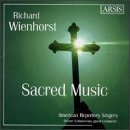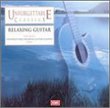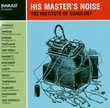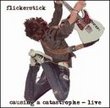| All Artists: Richard Wienhorst, Robert Schuneman, American Repertory Singers Title: Richard Wienhorst: Sacred Music Members Wishing: 0 Total Copies: 0 Label: Arsis Records Release Date: 2/9/1999 Genre: Classical Styles: Opera & Classical Vocal, Chamber Music, Historical Periods, Classical (c.1770-1830) Number of Discs: 1 SwapaCD Credits: 1 UPC: 600313011023 |
Search - Richard Wienhorst, Robert Schuneman, American Repertory Singers :: Richard Wienhorst: Sacred Music
 | Richard Wienhorst, Robert Schuneman, American Repertory Singers Richard Wienhorst: Sacred Music Genre: Classical
|
Larger Image |
CD DetailsSimilar CDs
|
CD ReviewsVery contemporary, almost scary, yet inspiring MagicSeyer | Roseville, CA USA | 08/29/2003 (5 out of 5 stars) "Richard Wienhorst's sacred music has a very contemporary, almost scary, yet inspiring sound. Richard was a weekend band musican, who sobered up and decided to study music theory and composition. The "wicked" syncopations and dissonant harmonies he uses may well come in part from his early band musician years. He came to love church music and later went on to become the chief instructor of musical composition at Valparaiso University. Although he sometimes forgot to shave, he was otherwise quite well prepared for his lectures and did a great job of introducting other wierd composers (besides himself) such as Karlheinz Stochausen. --His setting of the Seven Last Words of Christ is quite popular in colleges and universities, but it too difficult for the average church choir. Wienhorst has said that his style is drawn from harmonies used by composers of the middle ages. That may be true, but for sure, he introduces new elements, such as more elaborate syncopations and dissonances and sometimes strange endings, like, for example ending a movement on an "added 6th chord in the Elie section of the Seven Last Words. "I kept trying to find another way, another chord to cadence on," he said quietly with a strong Midwest accent, but the music just kept coming back to that chord -- the soprano line just kept coming back to the 6th melodically. There was no other way for me to end it."Wienhorst often likes to end a tune on a perfect 5th -- in the style of a lot of ancient music. Beause of his heavy use of 4ths, 5ths, and major seconds, some critics think his music has an Asian influence. "It's really funny," he said once, "...funny to read what musical theorists say about your music. The way they interprete it, the chord you use and so on. Often, I was not thinking in those musical terms at all when I was composing that music.""As a composer, you've got to keep growing," he once said. "When you listen to music you wrote a year ago, you shouldn't really like it that much any more. Otherwise, that's a sign you're not growing and maturing as a composer."-- Phil Seyer author of What Makes Music Work and webmaster."
|

 Track Listings (22) - Disc #1
Track Listings (22) - Disc #1


